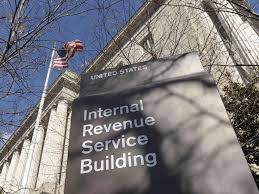IRS pays out billions in improper income-based tax credits, audit finds

By M.D. Kittle | Watchdog.org
The Internal Revenue Service handed out $14.5 billion in earned income tax credits in error, or about 24 percent of the $63 billion in refundable EITCs in 2012, according to a report released Tuesday by the IRS’ auditor.
But it doesn’t seem the IRS wants to do much to deal with the problem, according to the audit by the Treasury Inspector General for Tax Administration, or TIGTA.
EARNED CREDIT? A new audit shows the Internal Revenue Service made as much as $22 billion in improper payments to individuals claiming popular refundable tax credit programs.
An earned income tax credit is a refundable tax credit for low- to moderate-income working individuals and couples, particularly those with children. The benefit depends on a recipient’s income and number of children.
As of 2014, the maximum payments were:
- $6,143 with three or more qualifying children
- $5,460 with two qualifying children
- $3,305 with one qualifying child
- $496 with no qualifying children
While processes have been developed to identify improper payments and their root causes, TIGTA found the IRS has not developed processes to quantify or identify the root causes of improper additional child tax credits. Approximately $26.6 billion in ACTCs were paid out to low-income individuals in 2012.
“This audit was initiated because the IRS is required to identify and take actions to address the root causes of improper payments in Federal programs identified as being at high risk for improper payments,” the report states. “The only IRS program identified as a high risk is the EITC.”
The child tax credit program appears to have its issues, too.
ACTC, as the IRS notes, “is an important tax credit that may be worth as much as $1,000 per qualifying child depending upon your income.”
The Treasury inspector general estimates the potential ACTC improper payment rate for fiscal year 2013 was between 25.2 percent and 30.5 percent, with potential improper payments totaling between $5.9 billion and $7.1 billion.
“The IRS has continually rated the risk of improper ACTC payments as low,” the audit states. “However, TIGTA’s assessment of the potential for ACTC improper payments indicates the ACTC improper payment rate is similar to that of the EITC.”
Significant changes in IRS compliance processes would be necessary to make any significant reduction in improper payments, the audit notes.
What would help? Giving the agency more authority to make corrections to tax returns when information is obtained from the U.S. Department of Health and Human Services indicates refundable claims are not valid or would lead to improper payments, TIGTA states in the audit.
“TIGTA estimates such authority could have potentially allowed the IRS to prevent more than $1.7 billion in questionable EITC payments in Tax Year 2012,” the audit states.
The auditor recommends the IRS “accurately reflect the high risk associated with ACTC payments, identify the root causes of the improper ACTC payments, and establish a plan to reduce erroneous payments.” And TIGTA recommends the IRS contract with Health and Human Services to obtain the complete National Directory of New Hires database.
A legislative proposal to obtain more authority over the database to systemically verify claims for other income-based refundable credits also may be in order, the auditor notes.
The IRS has agreed with TIGTA’s recommendation to pursue expanded National Directory of New Hires authority, but did not agree with the inspector general’s other recommendations. TIGTA’s is, once again, concerned with the IRS’ reluctance to follow its recommendations.







